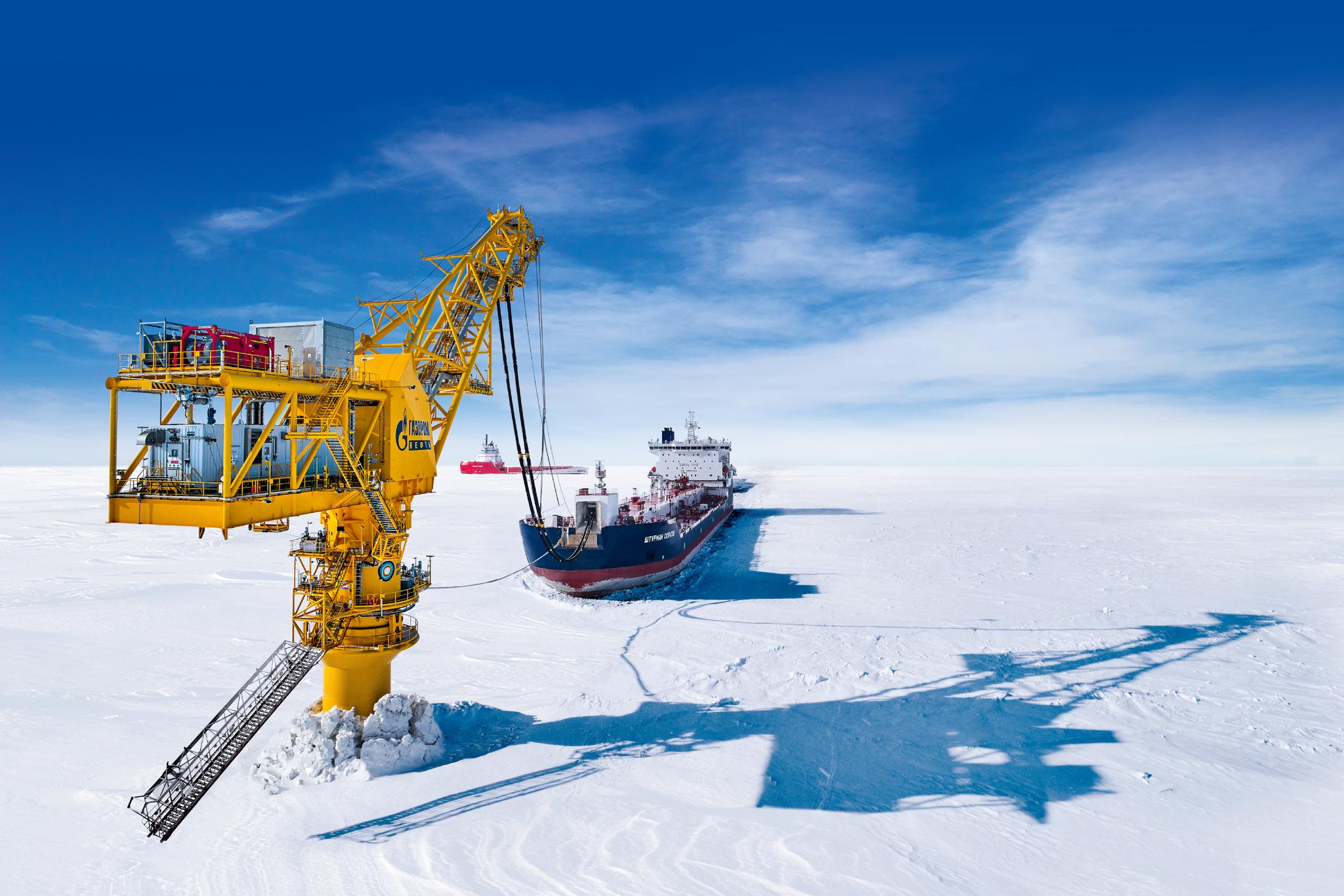Development of the Novoportovskoye oil and gas condensate field, located at the arctic circle, has won the Excellence in Project Integration Award at the International Petroleum Technology Conference held in Dhahran, Saudi Arabia last week.
Gazprom Neft, a subsidiary of Russia's energy giant Gazprom that manages Novoportovskoye, has become the first Russian energy company given the prestigious industry award.
The Excellence in Project Integration Award is given only to projects that exceed $500 million in value and represent the frontiers of oil and gas development. Last year’s winner was Saudi Aramco, which was recognized for its unique offshore project at the Manifa field, discovered in 1954 but has produced oil only in the last decade.
This year 17 nominations from 10 companies representing nine nations were in the running. France’s Total and Malaysia’s Petronas trailed behind Gazprom Neft.
Discovered in 1964, the Novoportovskoye oil and gas condensate field was left undeveloped for decades due to its remote location on the Yamal Peninsula in Siberia. The major field covering more than 250 square meters holds an estimated 250 million tons of oil and gas condensate and more than 320 billion cubic meters of natural gas.
For the past five years, Gazprom Neft has maintained year-round delivery of oil via an offshore loading terminal known as the Arctic Gate, using a fleet of icebreakers and ice-class oil tankers designed for the Arctic’s harsh climate.
“The development of the Novoportovskoye field is a unique project, thanks to which Yamal oil was first shipped to Europe along the Northern Sea Route all year round,” Vadim Yakovlev, an official from Gazprom Neft, noted in the press release. “This allowed the formation of a large oil and gas cluster beyond the Arctic Circle of Russia.”
To service what is a remote and isolated project, Gazprom Neft invested in remote surveillance and production technologies, including creating a digital version of the field that helped engineers and researchers understand it better. Extreme winter temperatures of -60 degrees Celsius (-76 degrees Fahrenheit), with at least 86 days of snowstorms each year and an average of 245 snow-covered days, presented new challenges for the operator of the project.
“Today, in the conditions of permafrost, we successfully develop complex multicomponent oil and gas reserves, apply advanced technologies and calculate and make the most effective decisions on the base of the created digital asset models,” Yakovlev is quoted as saying.
“A high assessment of the global industry community proves that our company remains at the forefront of technological development and is ready to master the most complex projects, including in the Arctic.”
As new sea lanes open up due to changes in the global climate, the Arctic region has become a strategically important area for Russia, as it is rich in natural resources. According to estimations made by the United States Energy Information Administration, the area may contain nearly 30 percent of the world’s remaining natural gas and 13 percent of its oil under the bottom of the northern seas.
“The Arctic is a region of discoveries and pioneers even in the modern world, the implementation of projects in the Far North requires constant readiness for challenges and the search for innovative solutions,” Aleksey Ovechkin, general director of Gazprom Neft’s Yamal branch, said in the press release.







 President Ilham Aliyev shed light on the evolving contours of the peace process with Armenia during an international conference in Baku this week. ...
President Ilham Aliyev shed light on the evolving contours of the peace process with Armenia during an international conference in Baku this week. ...
 Azerbaijan and Armenia started the process of demarcation of their border on Tuesday, with the installation of the first border markers based on ge...
Azerbaijan and Armenia started the process of demarcation of their border on Tuesday, with the installation of the first border markers based on ge...
 Iran and Pakistan have signed eight cooperation documents in various fields, and agreed to strengthen ties to fight terrorism in the region.
Iran and Pakistan have signed eight cooperation documents in various fields, and agreed to strengthen ties to fight terrorism in the region.
 Iranian President Ebrahim Raisi expressed Tehran’s readiness to participate in significant development projects in Sri Lanka during the inauguratio...
Iranian President Ebrahim Raisi expressed Tehran’s readiness to participate in significant development projects in Sri Lanka during the inauguratio...
 As the conflict between Ukraine and Russia escalates, the strategic importance of Kharkiv, Ukraine's second-largest city, has come sharply into focus.
As the conflict between Ukraine and Russia escalates, the strategic importance of Kharkiv, Ukraine's second-largest city, has come sharply into focus.



